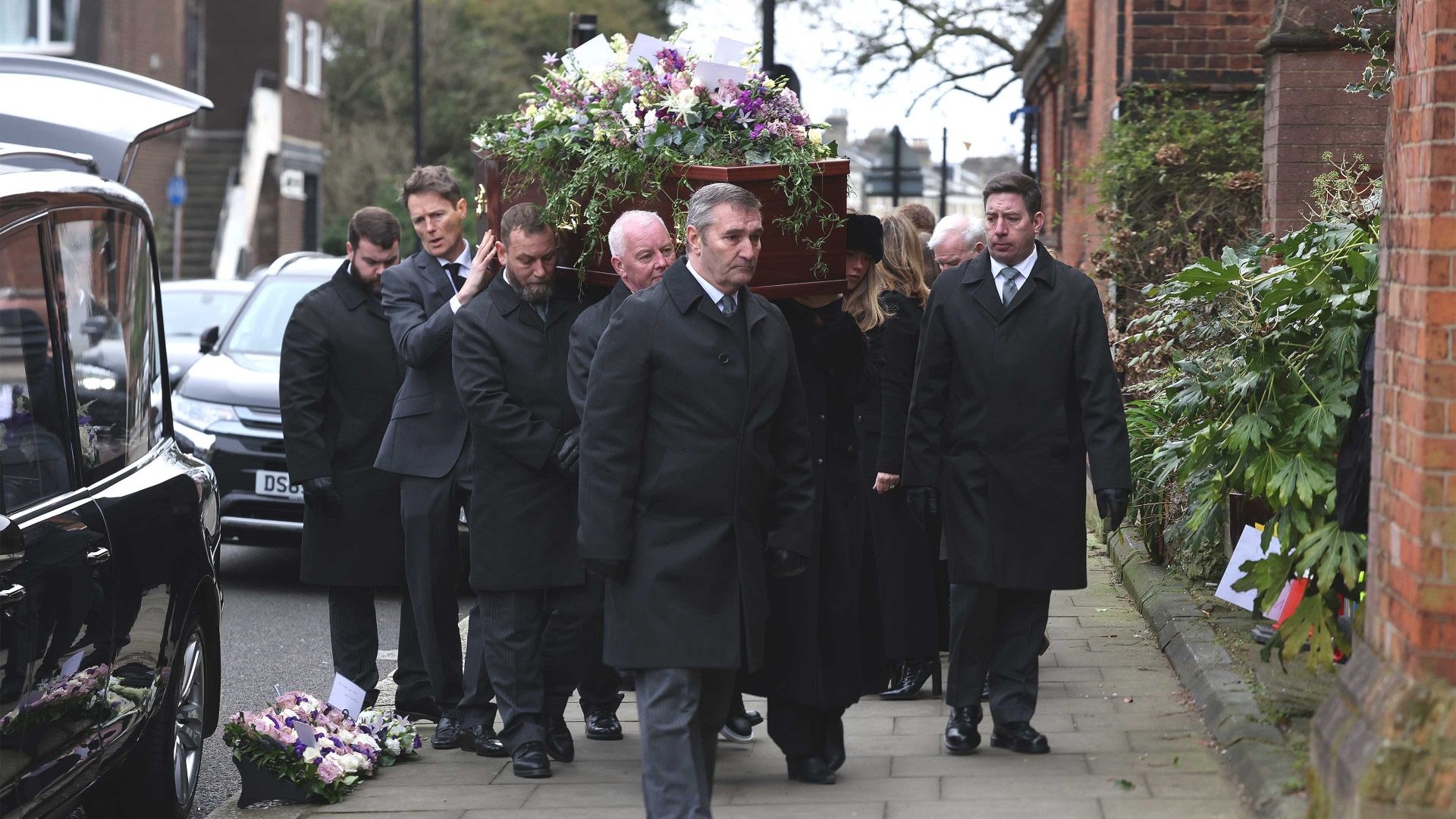So, on the one hand, when I turned up to speak at a Labour fundraiser in Croydon, I was greeted by flag-waving, loudhailer-shouting, pro-Palestine protesters yelling at me for being a Zionist war criminal. And on the other, I have just received an email from an Israeli Jew so angered by my and Rory Stewart’s allegedly pro-Palestinian stance on our podcast that it has left me reeling from its brutality.
When the October 7 attacks took place, we did a series of discussions and interviews in which we explored the complex issues involved, and committed to trying to understand all sides. I deliberately don’t say “both sides,” because to do so underlines the problem… you are either pro-Palestine, or pro-Israel, with no space for shades of grey in between.
It is surely possible to feel a sense of revulsion at the pain and suffering of the people in Gaza, while also trying to put ourselves in the minds and hearts of the Israeli hostages still held by Hamas, the minds and hearts of hostages’ families whose lives are being torn apart by fear, and the minds and hearts of the friends and families of those killed on October 7.
It is surely possible to believe that Israel would be better off without Benjamin Netanyahu at the helm, while also believing that Israel has the right to exist, and that Hamas deserves to be defeated in its violent and destructive aims.
It is surely possible to want Keir Starmer to say things that make us feel better in the moment, while also understanding that it is legitimate for him to balance the limited power he has in these circumstances, against the influence he would hope to have with the US and Israel should he become prime minister, and that he does not wish to sacrifice that influence before he even gets there.
In short, this is all a lot more complicated than a tweet or a slogan can allow, and the polarisation on which the simplifying sloganising depends is part of the problem here, not the solution.

There I was, happily thinking Herr Marcel Reif was just a very good commentator and pundit who presents one of my favourite German football podcasts, Reif ist Live, and who shares my enthusiasm for the impact Harry Kane is having on the Bundesliga. Then, suddenly, he pops up on the German news, getting a standing ovation for a speech he was making to a joint session of the German parliament. What the…? It was as though John Motson had popped up to do one of the readings at the Queen’s funeral.
Along with Auschwitz survivor, 91-year-old Eva Szepesi, Reif had been asked to take part in the Bundestag’s annual Memorial Hour to remember victims of Nazism. Born into a Polish Jewish family four years after the end of the second world war, his grandparents and other members of his family had been murdered by the Nazis. His father, Leon, however, was rescued from the train taking him to the extermination camp, and made his way back to Poland. But when antisemitism reared its head there in the 1950s, he decided to leave with his young family, and ended up via Israel in a very different Germany.
His father never spoke about what had happened, because, Reif’s mother later explained, he had not wanted his children to be “haunted and tormented by the terrible shadows that had darkened and destroyed his childhood and youth.”
Reif ended his speech by recalling three words his father used to say to him “sometimes as a reminder, sometimes as a warning, as advice or even as a reprimand. Just three words, in the warm Yiddish that I miss so much: ‘Sei ein Mensch.’” Be a human.
And that was the moment the cameras turned to foreign minister Annalena Baerbock, who was crying, then back to Reif, in front of whom the whole parliament stood to applaud.
Sticking with the second world war, and Auschwitz, we went to see Oscar-nominated The Zone of Interest last week, and if you haven’t done so yet, I cannot recommend it strongly enough. It focuses on the family of the man who ran the concentration camp, whose towers and turrets are visible over the garden wall, but whose victims are neither seen nor heard, save for the occasional yelp or scream, the cause of which you are left to imagine.
The story is based on a novel by Martin Amis, and the film was both written – in German – and directed by a Brit, Jonathan Glazer, underlining my view that after years of Tory blah and bluster about “world-beating Britain,” the one area where we can actually make that claim is in the arts and culture. Britain as a cultural superpower… is it too late for Labour to weave that into their five missions?
At least if Labour do win, they will have in charge of culture someone who knows a bit about it. In an earlier career, the shadow secretary of state for culture, media and sport Thangam Debbonaire was a professional cellist, who I heard playing recently – brilliantly – at an event in Lambeth Palace, and who cites listening to classical music as one of the factors behind her recovery from breast cancer. It is definitely time we realised that culture is about so much more than just, er, culture!
I thought I knew Derek Draper pretty well, but I learned an awful lot more about him at his rather splendid funeral at St Mary’s Church in Primrose Hill. The Bishop of Exeter no less told the packed church that “Derek was the only person I’ve ever managed to convert.” I did know Derek had found God, but only when Bishop Atwell told the story did I know how.
He explained that Derek, who had been through a rough time following a fairly spectacular fall from grace as a political adviser, had written to the Dalai Lama asking for spiritual guidance. “Only Derek could write to the Dalai Lama!” he said. Indeed.
“But the Dalai Lama wrote back, saying he was not interested in helping unless Derek explored his native Christian tradition of spirituality.” And so, Derek turned up at St Mary’s, where the Bishop was then a mere humble vicar.
Derek went from being a humbled politico to being a psychotherapy patient-turned-psychotherapist, and as such his review of my first novel, about a psychiatrist’s relationships with his patients, meant a lot more to me than most. I have just looked it up online and, given all he has been through in the 15 years since, it was all the more poignant to read it now. I will spare you the wonderfully flattering bits and just leave you with his conclusion: “While it may seem ludicrously on-message to say it, I’d rate this novel a landslide victory.”
Thanks Derek. We can definitely say the same for your funeral. You had banks of cameras outside. Inside, you didn’t just have a bishop. You had Tony Blair talking about how your final years, and the love story of you and Kate Garraway, had been an inspiration to the nation. You had Elton John performing live, for God’s sake. And you had a High Church send-off so high I thought the incense was going to set off my asthma.
Best of all, your two lovely kids stole the show. Darcey by carrying out the coffin, Billy by managing to get through his tears to deliver a lovely tribute to you as a dad, and being met with louder applause than Tony and Elton combined. RIP. If the point of life is to live it, and my psychiatrist constantly tells me that it is, then you certainly did that.




